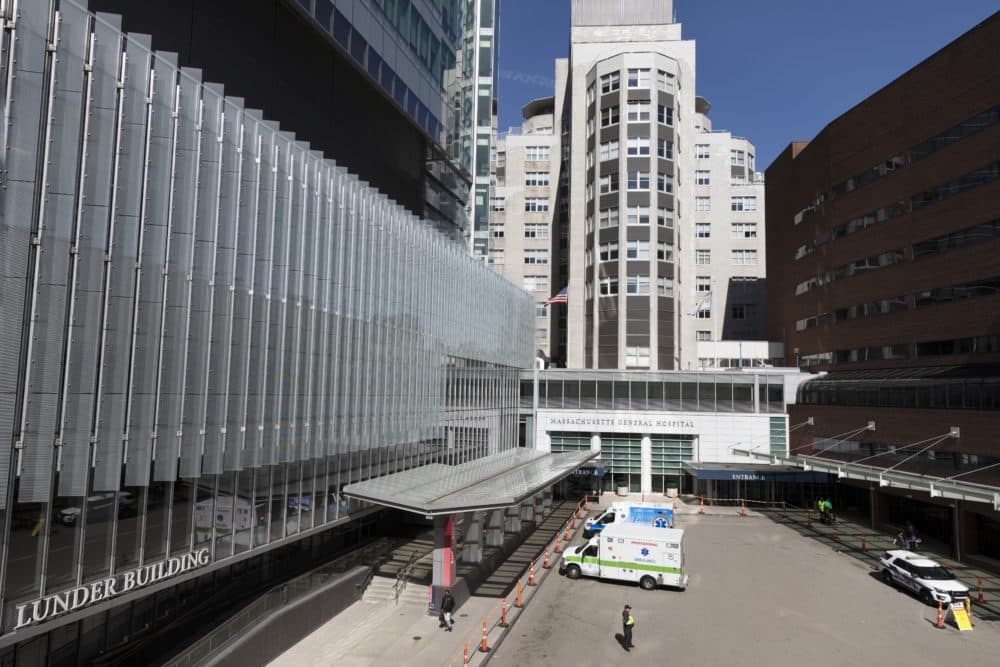Advertisement
Coronavirus
With Empty Beds And An Expandable ICU, Mass. General 'Looks Down The Barrel' Of Outbreak

Massachusetts General Hospital currently has 22 COVID-19 patients in intensive care, but it’s ready for many more, its president said Friday.
Mass. General's chief, Dr. Peter Slavin, said the hospital is prepared for a surge of coronavirus patients.
"It currently operates about 150 intensive care beds and we think we could expand that to a total of 400," he said. "And we think we have the space, the staff and the ventilator capacity necessary to do so." Though, he added, "We certainly hope we never have to implement that plan."
The hospital is unusually empty these days in order to have room for a surge of patients, Slavin said, with only about 65% of beds occupied compared to normally closer to 99%, and revenue roughly cut in half. Among those beds, he said, 163 are occupied by patients who have tested positive for the coronavirus or are awaiting results.
Slavin and the hospital's chief of infectious diseases, Dr. Rochelle Walensky, told the Massachusetts High Technology Council that the hospital, which is a nationally designated center for care during outbreaks and disasters, is operating under a new rhythm.
"We used to worry about a whole host of things." Slavin said. "I can't even remember what those things were. We get up every morning, we fight COVID-19, we try to get a little bit of sleep at night, and then we wake up in the morning and do the same thing over again. And we anticipate being in that mode for the foreseeable future."
But the two did report progress. The hospital's lab was one of the first to roll out in-house testing, Walensky said, "which has made things extraordinarily easier for us." In contrast to the previous dire shortage of tests, "now we can do about 400 or 500 tests in house a day," she said, and the results come back within eight hours.
Walensky sounded a highly cautious note about two potential treatments under consideration for COVID-19: an antiviral drug, remdesivir — Mass. General is now enrolling patients in a clinical trial of it — and hydroxychloroquine, a malaria drug. But she expressed hope that attempts to develop treatments from the antibodies of people who've had the virus and recovered from it could pan out.
Asked when the public can emerge from its stay-at-home state, Walensky said modelers project virus peaks in mid-April, and it will likely be mid-May before restrictions can be relaxed, and even then with cautious moves.
"Those conversations need to happen," she said. "We've been in kind of an all-hands-on-deck mode as to what we're about to face as we look down the barrel. But I think as soon as we get out of that phase, the next thing we really need to think about is what does it look like on the other side of this, and how quickly can we safely emerge?"
